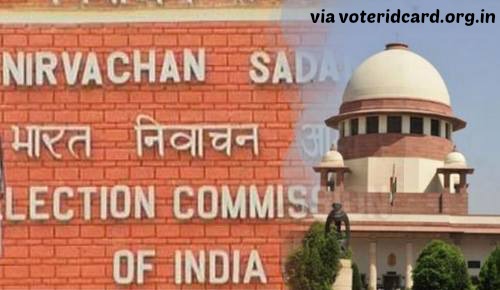After every few years Indian citizens participate in elections. The country, which is one of the largest democratic nations in the world, holds General Elections where Members of the Parliament are selected by the Indian people. Similarly, people also choose their state representatives in State Elections. Out of the many other elections held in the country, the Election Commission of India (ECI) is primary responsible for the General Elections and State Elections.
Elections in India
One of the chief features of democracy is a government that is by the people and for the people. Elections in India are an essential element in Indian politics. After every 5 years, elections are held for the Lok Sabha and State Assemblies where people’s representatives are voted to power.
Citizens of India who have attained 18 years of age, have a valid voter ID card, and have their names listed in the electoral roll are eligible to vote. However, better said than done, there are procedures which handle voter ID card allocation or ensure elections are free-and fair. In all such activities, ECI plays a key role.
Election Commission of India
The ECI is a constitutional body that is headed by the Chief Election Commissioner (CEC) and 2 Election Commissioners (EC). They are elected by the President of India. The CEC was set up in 1950 to oversee the elections in India with only the CEC presiding over the body.
However, in 1989, the ECs were appointed. Within themselves, the three members of the ECI supervise elections. The decision will be the opinion opted by the majority if there are any controversies in the decisions by commissioners.
The commissioners enjoy compensation equal to those given to the Supreme Court judges. They are eligible to stay for a span of 6 years. However, if they attain the retiring age of 65 before their term expires, they need to step down.
Tasks Allotted to the Election Commissioners
As per Article 324 (1), the Election Commission of India will have the sole authority to manage and implement elections of Lok Sabha, Rajya Sabha, and State Assemblies. For instance, the autonomous body will:
- Issue voter ID cards, update voter cards as per forms filled in by the applicants
- Prepare electoral rolls by updating new entries, revising existing entries, if any, and deleting defunct entries
- Monitor polling booths, election machineries, etc. to ensure elections are free and fair
- Solve or delegate duties to State Electoral Officers of each state to ensure state and General elections are conducted properly.
- Select State Electoral Officers and other supervisors to oversee Panchayat and municipality elections. Though the ECs don’t have direct control over these elections yet, they can issue directives indirectly to ensure elections are done properly.
- Delimit or define constituencies with the new changes in the states.
- Allot symbols to political parties, recognize parties, accept election papers from candidates, etc
- Implement election procedures for President, Vice-President, and Legislative Councils
- Take charge of issues regarding rigging, violence during elections, etc. The commission can cancel elections if it finds that the elections were rigged
- Advice President and Governor in case an elected member needs to be disqualified for malpractices
- Advice President regarding re-elections of seats that were left vacant or conduct state elections in-case there is a President’s rule in the state
The ECI ensures election campaigns are done in a proper manner. Certain amount of money is fixed for each party to campaign for the coming elections. They usually get 14 days to campaign. Any illegal steps taken by a party, even though it is the ruling party, are summarily stopped and the party is penalized by the ECI.
You can also visit the Election Commission of India website or the office to find out how much time it will take to issue voter ID cards or about your name being listed in the electoral roll. All in all, for any issues regarding elections, you can consult this constitutional body for help.

Comment Policy [Please read this before posting your comments]: Only use your real name. Your words are your own, so be nice and helpful if you can. Please, do not share any personal information in your comments. For further details, please read our Comments Policy available over here.